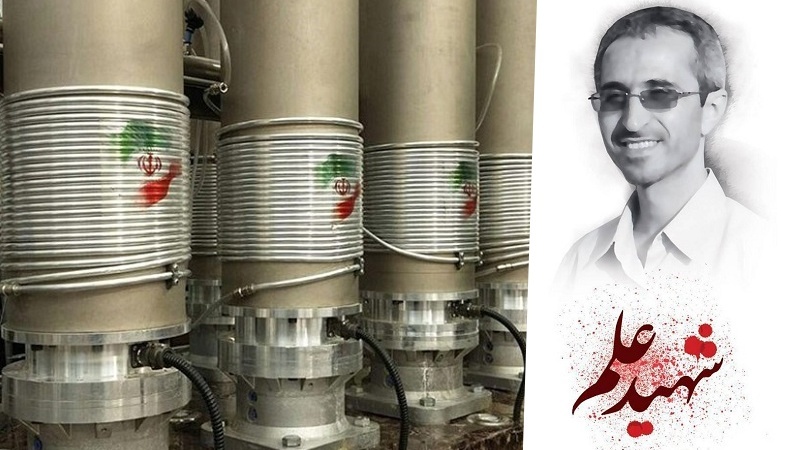The Leader of the Islamic Revolution referred to one of the turning points in Iran's scientific and nuclear history in his recent meeting with Basij volunteer forces. The Leader stated: "Those who were able to break the US's malicious conspiracy in the case of 20% enriched uranium were Basijis."
The Farhikhtegan newspaper wrote in this regard and in an analysis of Iran's nuclear issue: These statements recall an important story from 2 decades ago, when Iran, faced with sanctions and obstruction by global powers, relied on its Basiji scientists to achieve 20% uranium production technology.
In this path, Turkey and Brazil also appeared as mediators, but ultimately, these roles, under US pressure, were unsuccessful, creating an international justification for Iran's public display of its ability to produce 20% uranium.
Iran's access to 20% uranium production technology is a milestone in the country's nuclear history and a symbol of scientific progress and national will. This success, achieved under sanctions and unprecedented pressure, showed that Iran can meet its vital needs even in the most difficult circumstances.
The US has blocked the sole supplier of nuclear fuel to Iran from continuing exchanges
In the late 2000s, Iran faced a serious crisis. The Tehran research reactor, which had been operating since the 1940s to produce radioactive isotopes and conduct scientific research, needed 20% enriched uranium fuel. This reactor was built by the US in the 1940s, and before the revolution, its fuel was also supplied by the US. After the revolution, Iran met this need from other countries, including Argentina.
But in 2008, with the depletion of 20% enriched uranium reserves, Iran requested Argentina to buy new fuel. The US, aware of the strategic importance of this issue, pressured Argentina to prevent Iran from meeting its needs. This action put Iran in a situation where it had to either shut down the Tehran reactor or find other solutions. Shutting down the reactor meant stopping the production of radioactive isotopes, which would put the lives of thousands of patients at risk.
Iran's game with the Turkey and Brazil card
To solve this problem, Iran entered into negotiations with the member countries of the Vienna Group (the US, France, and Russia). These countries proposed exchanging Iran's 3.5% enriched uranium for 20% enriched uranium.
According to this proposal, Iran had to send 1,200 kilograms of its 3.5% enriched uranium to Russia and receive 120 kilograms of 20% enriched uranium after a year. However, this proposal was rejected by Iran for various reasons. First, Western countries did not provide guarantees for the delivery of fuel on time. Second, past experiences, such as France's breach of contract in the Bushehr nuclear power plant project, had strengthened Iran's distrust.
Iran proposed that this exchange be made on Iranian soil or in a third country, such as Turkey. In this regard, Iran involved Turkey and Brazil, which had good relations with Tehran, as mediators. Based on this plan, which was the basis of the Tehran Declaration, Iran would send 1,200 kilograms of its 3.5% enriched uranium to Turkey and receive 120 kilograms of 20% enriched uranium in return.
In addition, Iran had the right to retrieve its uranium from Turkey at any time. The presidents of Turkey and Brazil had informed Obama of this plan before signing the declaration. However, as soon as the declaration was published, Obama opposed it, despite knowing that it would damage the US's reputation.
The US was aware that excluding Russia from the nuclear exchange process by Iran could pave the way for Kremlin cooperation with Washington to take a common stance against the Islamic Republic. Therefore, Obama, despite being aware of the negative consequences of rejecting the Tehran Declaration on the US's reputation, took this risk to approve a resolution against Iran and gain Russia's support. But he did not know that this action would ultimately benefit Iran.
The US was caught off guard
Iran, by highlighting the US's dishonest behavior, created an opportunity to gain the support of the IAEA and convince public opinion of the need to produce 20% enriched uranium domestically. The West, which did not expect Iran to achieve 20% enriched uranium production technology so quickly, was severely caught off guard.
Western countries, which had tried to force Iran to accept their terms through political and economic pressure, were now facing a country that was meeting its needs independently. In September 2009, Iran announced that it had produced 25 kilograms of 20% enriched uranium. This amount increased every month, and Iran was able to fully meet its domestic needs.
Martyr Shahriari unlocked the production of nuclear fuel
Iran's access to 20% enriched uranium production technology was thanks to the tireless efforts of the country's Basiji scientists, particularly Martyr Majid Shahriari. Shahriari was able to design and connect two centrifuge cascades, making the complex formula for enriching 5% uranium to 20% a reality.
This process, which required extremely high precision and control, was one of the most challenging stages in nuclear fuel production. In addition, he successfully produced fuel plates, which were necessary for using 20% enriched uranium in the reactor. This achievement made Iran self-sufficient in nuclear fuel production.
Lessons from a historical experience
The story of Iran's access to 20% enriched uranium is a historical experience of deception and obstruction by global powers. The US and its allies tried to limit Iran's scientific capabilities by exploiting Tehran's vital need for nuclear fuel. But Iranian scientists, relying on domestic knowledge and power, thwarted this conspiracy.
This US action showed that the main goal was not to solve Iran's
problem but to limit Iran's nuclear capabilities and deplete its
enriched uranium reserves. Moreover, the role of Turkey and Brazil as
mediators showed that even sincere efforts to resolve disputes can fail
under US pressure. This experience provides an important lesson for
global diplomacy: relying on domestic capabilities is the best way to
counter external pressures.
/129

